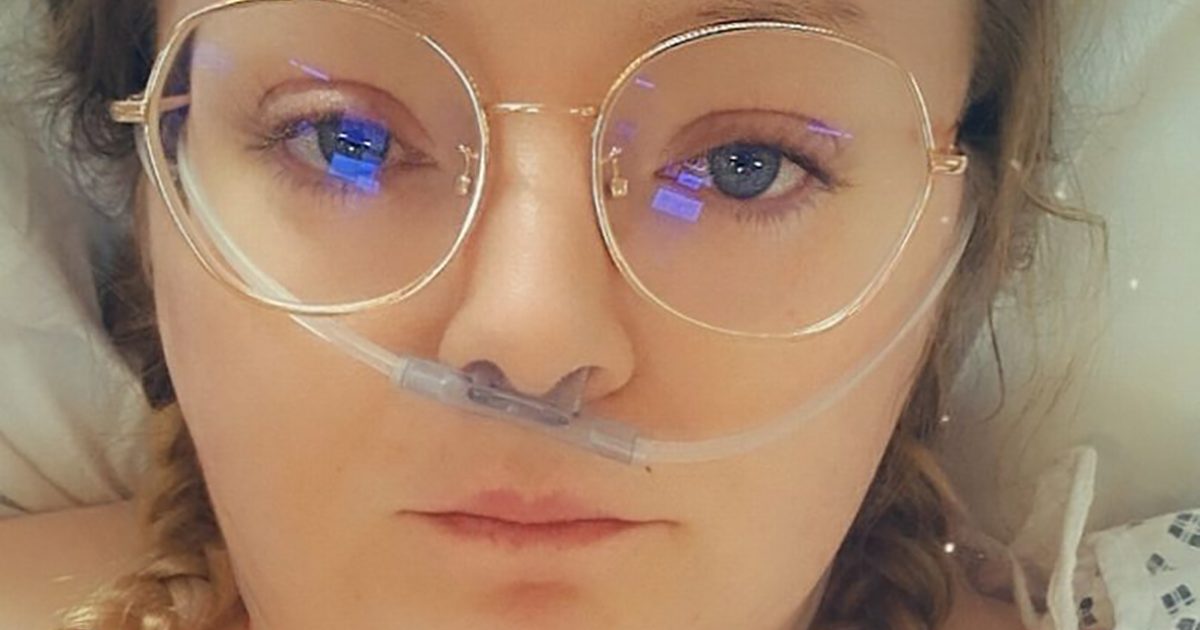The Importance of Pap Smears and HPV Vaccine
- 27-year-old Leanne Newton had to postpone her wedding three times due to the COVID-19 pandemic. Then she received a cervical cancer diagnosis before the wedding. Now she's using her story to educate other women on the importance of cervical cancer screenings.
- Cervical cancer is a type of gynecologic cancer that's typically detected through a routine Pap smear; Newton's test revealed she had HPV (human papillomavirus). HPV causes more than 70% of cervical cancer cases.
- The vast majority of humans in the U.S., both men and women, will eventually get infected with HPV, doctors tell SurvivorNet. But cervical cancer is unique in that it's usually preventable with the HPV vaccine. The vaccine is typically given to children before they're sexually active, as HPV is transmitted through sexual contact.
"The plan was to get married and start a family," Newton, who goes by Lily, tells the Stoke Sentinel, a daily newspaper in central England where she lives. "Covid meant we had to rearrange our wedding three times, and then this happened."
Read More
Lily's Cervical Cancer Diagnosis
Newton had her first-ever Pap smear in April. In the U.K., women aren't invited for a Pap test until about six months before they turn 25. In the United States, it's recommended that women start getting Pap tests at 21.
Six weeks later, she received the news that she had HPV short for human papillomavirus, the most common sexually transmitted infection. (HPV causes more than 70% of cervical cancer cases.) She then underwent a colposcopy, which is a procedure to visually examine the cervix, as well as the vagina and vulva. The procedure and biopsy confirmed that she had adenocarcinoma of the cervix a less common type of cervical cancer.
"The vast majority of humans in the U.S., both men and women, will eventually get infected with human papillomavirus," Dr. Allen Ho, director of the Head and Neck Cancer Program at Cedars-Sinai Medical Center in Los Angeles, told SurvivorNet in a previous interview. "The important thing to know about HPV is that there are many different strains, and only a couple of them tend to be more cancer inducing. Probably less than 1 percent of the population who get infected happen to have the cancer-causing virus that, somehow, their immune system fails to clear."
HPV and Cancer Risk: The Basics
Cervical cancer is a type of gynecologic cancer that's typically detected through a routine Pap smear; during this test, your doctor will collect a sample of cells from your cervix (using a small brush or spatula). The cells are then examined under a microscope for abnormalities, including cancer and changes that could indicate pre-cancer.
There are different types of cervical cancer, Dr. Jose Alejandro Rauh-Hain, a gynecologic oncologist at the University of Texas MD Anderson Cancer Center, tells SurvivorNet. Most of the time, the cervical cancers are squamous cell carcinoma and adenocarcinoma, he says. There are other unusual histologies, but these are the most common.
Newtown underwent a radical trachelectomy surgery to remove the cervix and tissue from around the cervix and a pelvic lymph node dissection on Sept. 2. She'll spend the next six weeks recovering.
"I've been quite fortunate in the sense that the stage of my cancer hadn't spread further than my cervix," she says. "They have removed my cervix and I'm hoping it's saved my fertility."
The Importance of Pap Smears and HPV Vaccine
Pap smears are effective at detecting cervical cancer early, which is why it's important to get routine tests.
Over the summer, the World Health Organization announced that it recommends an HPV DNA-based test as the preferred screening method for cervical cancer over the Pap smear. The majority of countries in the world (78%), use the Pap smear alone or combined with other tests, to screen for cervical cancer, according to the WHO. The current testing figures remain low across the globe. The WHO estimates that only 35% of women ages 30 to 49 have been screened at least once in their life for cervical cancer.
The U.S. Preventive Services Task Force recommends screening for cervical cancer in women ages 21 to 65 with cytology (Pap smear) every three years or, for women ages 30 to 65 who want to lengthen the screening interval, screening with a combination of cytology and HPV testing every five years.
"Please go and get your smear done," Newton says. "It's far better to have five minutes worth of discomfort than potentially ruin the rest of your life. Whether you are having symptoms or not please get it done. It's not worth the risk."
But cervical cancer is unique in that it's usually preventable with the HPV vaccine. The vaccine is typically given to children before they're sexually active, as HPV is transmitted through sexual contact.
Why the HPV Vaccine is so Important in Preventing Cancer
“We recommend strongly that children are vaccinated against HPV to prevent cervical cancer, but also to prevent head and neck cancer,” Dr. Jessica Geiger, a medical oncologist specializing in head and neck cancer at Cleveland Clinic Cancer Center, tells SurvivorNet.
“Now the key with the vaccine is that you received the vaccine before you ever reach sexual debut or have sexual encounters. So that’s why these vaccines are approved for young children ages 9, 10, 11 years old, up to 26.”
Related: 'Controversial' HPV Vaccine Shown to be Highly Effective in Wiping Out Cervical Cancer
Contrary to some detrimental misinformation circulated online, the HPV vaccine is entirely safe. There are virtually no side effects with this vaccine, Dr. Jonathan Berek, director of the Women's Cancer Center at Stanford Medical Center, tells SurvivorNet.
"It's incredibly safe. It's as safe as any vaccine has ever been."
Contributing: Anne McCarthy and Shelby Black
Learn more about SurvivorNet's rigorous medical review process.


